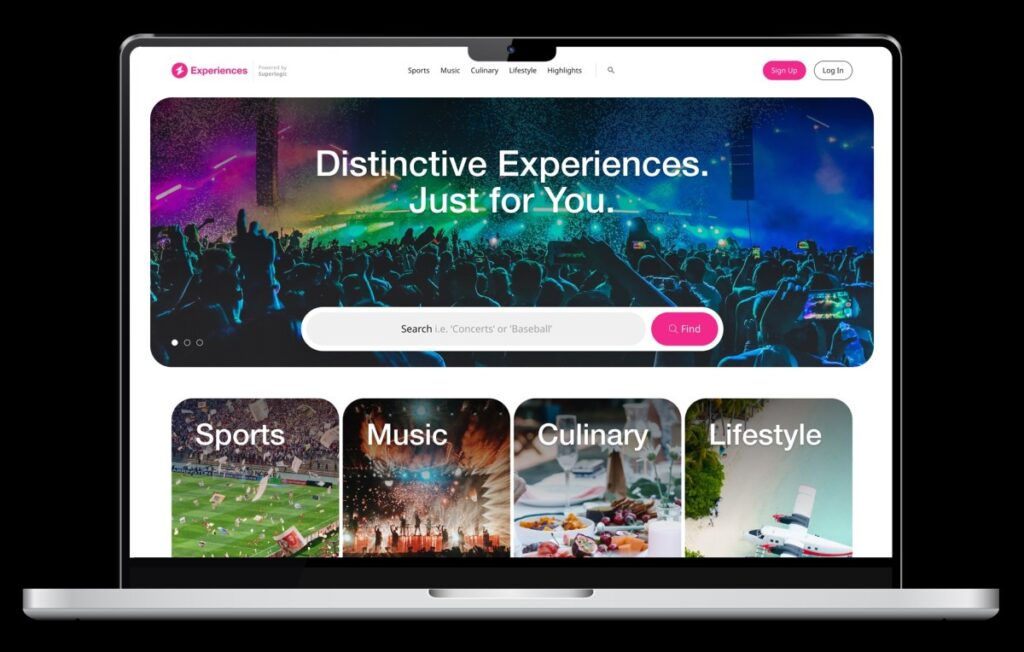Superlogic, a startup that helps give consumers a way to apply rewards points toward experiences, has raised $13.7 million at a $200 million valuation, the company tells TechCrunch exclusively.
Lin Dai, CEO and co-founder of Miami-based Superlogic, said his company’s technology is designed to “enhance the value of rewards points” by giving consumers a broader range of options in how to use them. Its platform plugs directly into existing loyalty programs for credit card companies, airlines, and retailers.
Superlogic partners with brands to help offer consumers what Dai described as “a catalog of experiences” that consumers can choose from instead of traditional points-based rewards, such as a hotel stay or commercial flight. Examples include NBA Finals tickets, “exclusive” tickets to music festivals, a behind-the-scenes look at a Broadway production, or private dining with top chefs
Because its offering is white-label, you won’t necessarily know you’re using Superlogic’s technology when you redeem the rewards through companies such as American Express, Mastercard, Visa, and Warner Music. The platform also manages the inventory of experiences, negotiates with providers, and handles payments on behalf of the brands it works with.
While Dai declined to disclose hard revenue figures, he did say the company notched “eight-figure-plus” revenue in 2024 and saw “significant growth year-over-year.”
Many people don’t realize that unused rewards/points can be considered a liability for a credit card company.
When a consumer earns points back on a purchase, that money technically belongs to the consumer, Dai explains.
“So then it’s money that the credit card company, for example, owes the consumer,” he said. “For every 100 points, there’s about $1 that the rewards company had to put aside to back that debt to their own customers… and say if a Fortune 500 brand goes bankrupt, those points actually need to be paid out to the consumer.”
In other words, it’s in a company’s best interest to have consumers cash in on those points.
Superlogic makes money by taking what Dai described as a “small margin percentage” on the transactions of when a consumer redeems points for an experience it helped facilitate.
“There are $25 billion worth of unredeemed points sitting on user accounts and credit cards programs’ balance sheets,” he told TechCrunch. “Our TAM is very high.”
Powerledger led the round, which was structured as a SAFE. Sangha Capital, 10SQ, Nima Capital, Actai Unicorn Fund, Hyla Liquid Venture Fund, and Liquid 2 Ventures also participated. Previous investors include Amex Ventures, Warner Music, Galaxy Interactive, Mirabaud Lifestyle Impact and Innovation, Recharge Capital, Dispersion Capital, and Sanctor Capital, among others. The capital infusion brings Superlogic’s total equity funding to more than $21 million since its 2017 inception.
Jemma Green, executive chairman of Powerledger, told TechCrunch that her firm invested in Superlogic because it helps brands avoid “exorbitant” sponsorship fees and “sign thousands of deals with experiential providers to offer VIP experiences at scale to their most loyal customers.”
She added: “This ability to engage consumers powerfully with minimal cost and complexity is really a game changer.”
Presently, Superlogic has just under 40 employees.
The company plans to use the new capital toward its launch with about half a dozen programs this year — ramping up staff, operations, and product capabilities, Dai said, “to support the expected new volume.”
Want more fintech news in your inbox? Sign up for TechCrunch Fintech here.
Want to reach out with a tip? Email me at [email protected] or send me a message on Signal at 408.204.3036. You can also send a note to the whole TechCrunch crew at [email protected]. For more secure communications, click here to contact us, which includes SecureDrop and links to encrypted messaging apps.







